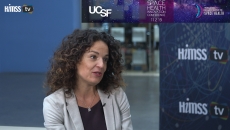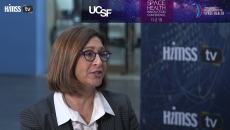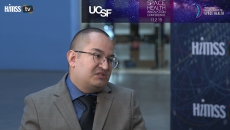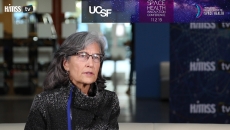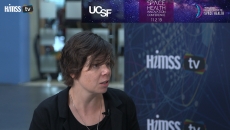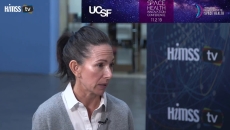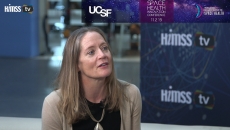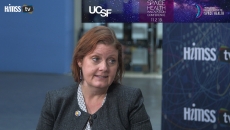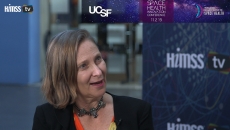Space Health Innovation Conference
Susanna Rosi, professor of physical therapy at UCSF, says data from her research on animals can help assess cognitive health risks of deep space travel.
New innovations originally designed for space are finding their way into our homes, says Translational Research Institute for Space Health (TRISH) Director Dorit Donoviel.
Emmanuel Urquieta, scientist with the Translational Research Institute for Space Health (TRISH), says the technology has the ability to expand the life of medications and food.
One of the benefits of the Space Health Innovation Conference was bringing NASA stakeholders to Silicon Valley to solve space challenges around health, says Dr. Aenor Sawyer, chief health innovation officer at Translational Research Institute for Space Health.
Kristin Fabre, senior innovation scientist at the Translational Research Institute for Space Health at Baylor College of Medicine, details how TRISH is holistically looking at astronaut health during space exploration.
Data-based clinical decision tools are needed in space that are accessible to those who may not have medical training, says Jennifer Fogarty, chief scientist of the Human Research Program at NASA.
Mary L. Bouxsein, professor of orthopedic surgery at Harvard Medical School, says there is a problem of bone loss during space flights and discusses how to maintain the muscular skeletal system during long-duration flights.
Insights into personalized genomics can help prevent diseases in outer space.
Julie Robinson, chief scientist at NASA's ISS division, talks about using health research on the International Space Station to prepare for a long-term mission to Mars.
There are challenges centered around human physiology and human factors in space and other extended environments, says Dr. Annette Sobel, professor at Texas Tech University and board member at the Translational Research Institute for Space Health.
